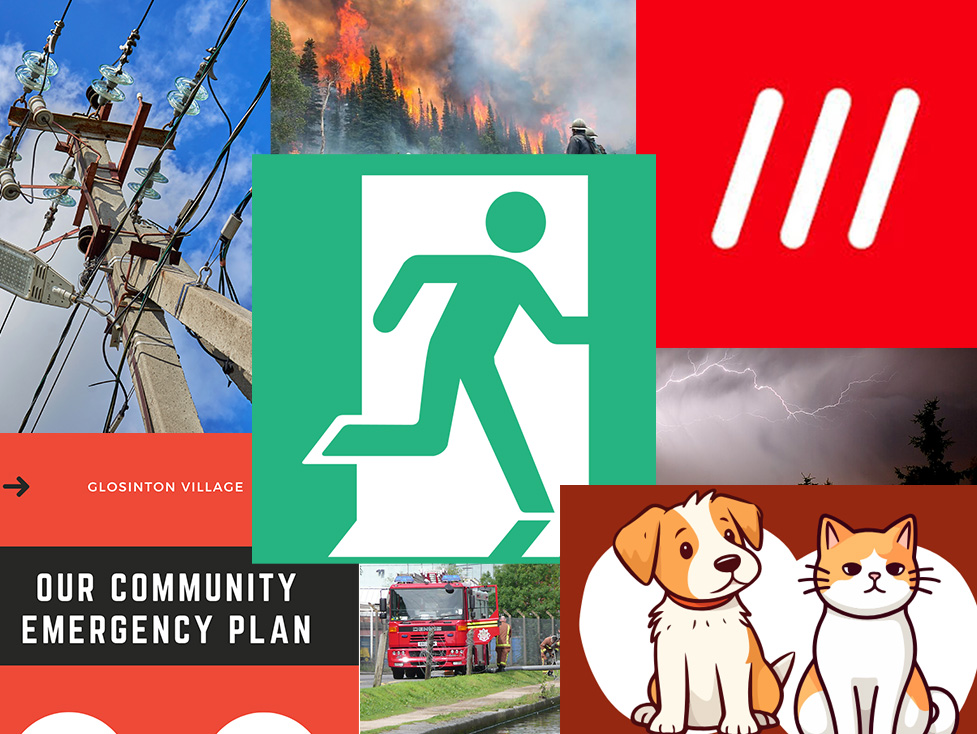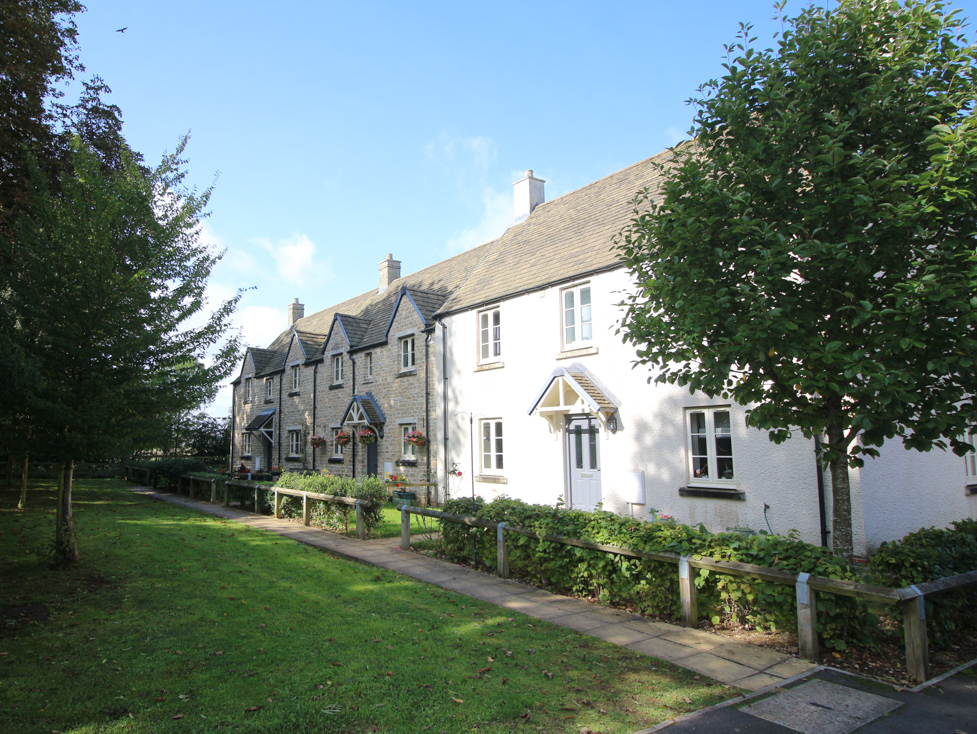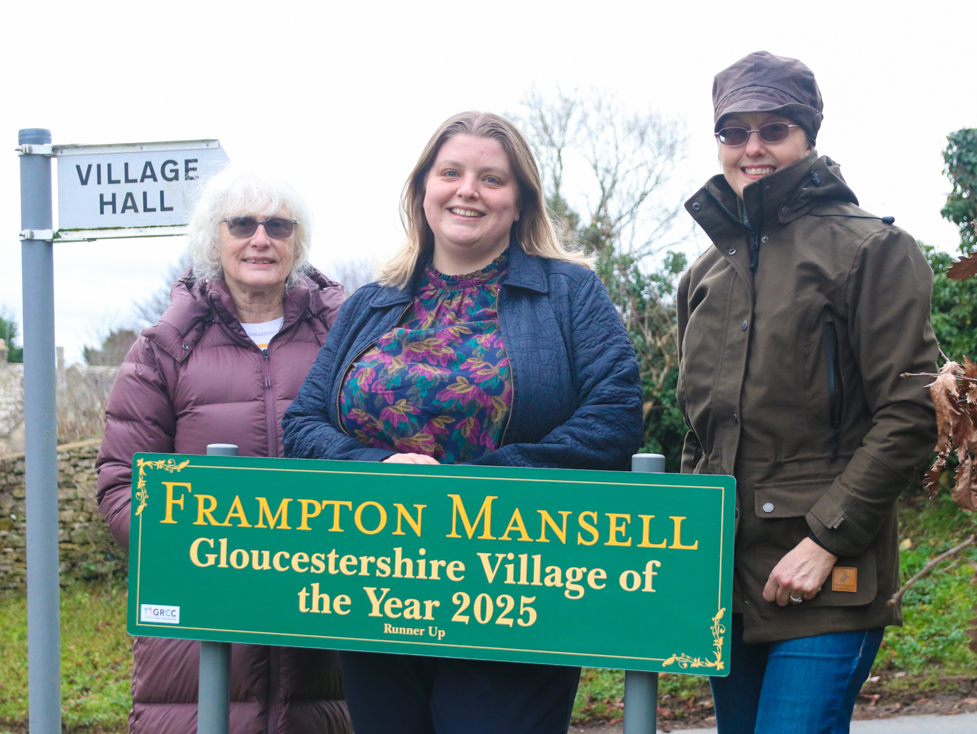- News & Events
- /
- Make A Plan: Preparedness Month 2025

16 Sep, 2025
Make A Plan: Preparedness Month 2025
GRCC's Community Resilience Officer Lucy Eccles continues her series of weekly blogs for Preparedness Month:
Welcome to week 3 of Preparedness Month! Last week we explored how to get informed about the risks in your local area , and this week we're focussing on how to effectively make a plan for emergency situations.
Map It
Do you know the main risks in your area? Could you precisely tell the emergency services the location of an incident?
We recommend:
- Read the Gloucestershire Community Risk Register . This gives you a summary of the main risks you could experience as a Gloucestershire community.
- What3words is a super-easy way of finding and sharing exact locations. What3word has divided the entire world into millions of 3-metre squares, and has given each square a unique three word address.
Challenge: can you find the what3words address of your house?
Safe Escape
Emergency situations may sometimes require you to evacuate. Planning escape routes in advance can save lives.
Gloucestershire Fire and Rescue Service recommends the following safe escape tips:
- Do not stop to retrieve any valuables
- Plan an alternative route in case one is blocked
- Make sure everyone in your house knows the plans
- Ensure people with limited mobility have an accessible escape route
For more info click here .
Grab Bag
In the event of an emergency, it’s useful to have a pre-packed bag filled with handy tools and supplies ready for evacuation, known as a "grab bag".
What you put in your grab bag needs to make sense to you. There are 5 key areas you should have supplies for:
- First Aid and Hygiene
- Food and Food Preparation
- Tools and Personal Protective Equipment
- Shelter and Warmth
- Light and Communication
Gloucestershire County Council’s household emergency plan template offers some useful advice on what to put in your Grab Bag.
Stop the spread
COVID-19 showed us all the danger of a fast-spreading virus, and proved that stopping the spread can save lives.
We may now all be familiar with preventative mechanisms such as using facemasks, hand washing, and keeping your distance from others, but it is still important to stay aware of best practice.
Hand washing is a super important tool that we can all implement every day to help prevent the spread of infections. Use the NHS guidance here to ensure you are washing your hands correctly – remember, you should wash your hands for the amount of time it takes to sing "Happy Birthday" twice (around 20 seconds in total)!
Community Resilience
Community resilience is the ability of a community and its individuals to prepare for, respond to, and recover from emergencies by using their own local resources, skills, and expertise.
The UK government urges communities to create a Community Emergency Plan. This is a local document, often created by the Town or Parish Council, that outlines how a community will prepare for, respond to, and recover from emergencies.
GRCC has expertise in improving Community Resilience and supporting the development of Community Emergency Plans throughout Gloucestershire. If you'd like to find out more, get in touch with us today via cdt@grcc.org.uk or 01452 528491.
Other resilience partners to check out:
- The UK Government’s Prepare Campaign
- Gloucestershire Local Resilience Forum
- Your local District, Borough, Town, or Parish Councils
Challenge: connect with your neighbours and ask locally if you have a Community Emergency Plan!
Pets
Preparing our communities involves preparing all of our residents – including our animal friends!
Check out the Emergency Planning Society’s Pet Emergency Kit Checklist here to ensure you have got everything ready for your pet in an emergency situation, such as making sure you have pet food supplies and medication in your grab bag.
Household Preparedness
Personal preparedness matters! As well as preparing as a community via a Community Emergency Plan, make sure you plan carefully as a household.
Gloucestershire’s Local Resilience Forum has put some advice together on how to prepare your family here .
This includes making a grab bag, checking safe escape routes, teaching family members how and when to shut off utilities (water, gas, electricity), and considering specific needs of family members, including the elderly, children, or individuals with disabilities.
Priority Services Register:
If you are of pensionable age, registered disabled, or living with children under 5, you may be eligible for extra assistance from utility companies during an emergency. Check your eligibility and sign up here .
Emergency planning doesn't need to be overwhelming – it's all about raising awareness in the community and taking practical actions. By preparing a simple plan, stocking up on essential supplies, and staying informed, you can give yourself and your community the best chance to stay safe.
Remember to check out The Emergency Planning Society’s next Preparedness Month live session on Friday 19th September at 11:00am using this Microsoft Teams link .
That's all for this week. Keep an eye out for next week’s blog where I will be looking at how to protect your family during emergencies!



